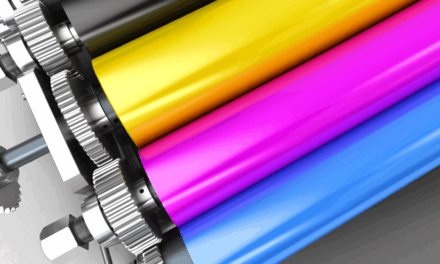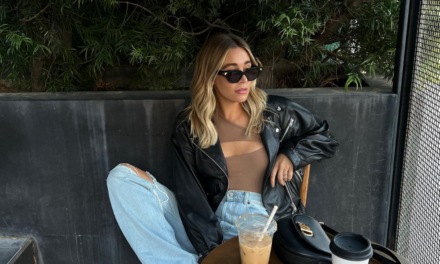For serious content creators, long and lucrative brand partnerships with top companies are the Holy Grail. They are a sought-after revenue stream that can sustain and grow the business and attract more opportunities.
But securing long-lasting brand partnerships means understanding exactly what brands want. To plenty of newbie creators, those brand partnership details might seem shrouded in mystery.
To pull back that veil, The Tilt checked in with brands that work with creators and agencies that connect brands with creators to find out what they really want to see. Here’s what they told us.
Brands and agencies tell @TheTiltNews what they really want to see from the content creators they do deals with. #CreatorEconomy #ContentBusiness Share on X1. Operate professionally
Answering emails in a timely manner, being available for meetings or calls during a brand’s business hours, and turning in projects on time within the agreed-upon guidelines might seem like table stakes. But if you operate that way, you could be ahead of the pack.
“Sometimes there is a bit of that artist notion where it’s like, ‘You’ve got to trust the process,’” says Jacquie Kostuk, director of creative strategy at FUSE Create, an independent ad and creative agency. “But [brands] are used to very precise check marks.”
Brands want to see a draft, Jacquie says. They expect creators to meet deadlines. And even though independence is the No. 1 reason creators start their businesses, you must make time to meet and work with brands. In other words, you need to follow the same rules as any other professional in your brand partnerships.
Brands expect creators to meet deadlines and want to see a draft of the sponsored content, says Jacquie Kostuk of @FUSECreate. #ContentEntrepreneur #CreatorEconomy Share on X“It doesn’t matter if the (creator is) great if the business professionalism is not there,” Jacquie says.
Sarah Walsh, who manages influencer marketing for Branch & Bramble, a lifestyle brand marketing agency, agrees. “I try to work with people who are really passionate about the work they do. And that is exemplified through their professionalism.”
Caveat: Brand and agencies talk. When content creators get a reputation for missing deadlines or ghosting sponsors halfway through a deal, other brands and agencies will take note and steer clear.
2. Support your pricing
Brands should understand and respect that you operate a content business to make money. But when creators submit a high-priced quote for a sponsorship deal and no metrics to explain why they should earn that, it’s going to raise some eyebrows.
“It feels like (creators) don’t always know their engagement rates all the time, and that’s the first thing I’m looking at, as someone representing a brand and choosing their influencers,” Sarah says. “That’s what’s going to make the decision on fees and payments that we give them.”
Know your engagement rates. That's what brands want to know from creators before deciding to partner and pay your requested fee, says Sarah Walsh of @BranchBramble. #CreatorEconomy Share on XJustify your pricing with the relevant stats, such as engagement rates and link clicks for past sponsored content. Your niche and location and your audience’s niche and location also may be of interest to brands.
“There have been times when we’ve asked, ‘Do you have any information on how your posts perform? Any insight on sales generated from your content?” says Sophia Rivera-Silverstein with Courtney Daniels Consulting, a marketing, PR, and strategic partnerships firm. “And we have gotten, ‘No, I don’t really collect that information, which seems essential for influencers.”
3. Focus on the audience
Sometimes a brand seeks creators with a huge online presence. But, often, micro-influencers and content creators with very specific niches can be far more helpful to brands that want to get their name out to particular communities. Brands and agencies say creators shouldn’t rule themselves out simply because their audience is small.
“That’s kind of the beauty of social media,” says Lauren D’Souza, founder of Ujjo, a hot sauce for coffee, who has had a lot of success working with micro-influencers. “If you create good content, you can get all those eyeballs, and you can get all that engagement.”
At the same time, while numbers and metrics interest brands, so does the quality of the community you’ve built. Brands and their agencies dive into comments and likes to see what your followers are saying – and how you respond to them.
Here’s what they don’t want to see:
- Comments that are just a bunch of emojis. “It’s not contributing to a conversation,” Sarah says.
- Creators who don’t respond to comments, according to Sarah.
- Lots of trolls. When Lauren first advertised Ujjo on Facebook, she’d get comments like, “Who would buy this?” or “Nobody asked for this.” If a creator with whom she’s considering to partner receives those kinds of comments, that’s not a good sign.
And here’s what they do want to see:
- Creators who respond to even just a handful of comments. “Influencers have a responsibility to the people that they’re creating content for,” Sarah says.
- Enthusiasm in the comments. Lauren works with a chef creator where followers are always “super positive” about everything she posts. “They’re like, ‘I can’t wait to try this. That’s super creative. What a great idea.’ That tends to be someone who is going to be a little bit more receptive to try a new condiment that you can put in your coffee,” she says.
4. Get creative
Brands typically come to the table with a content brief that outlines the required hashtags, photo guidelines, and messaging. But they also expect you to bring creative ideas as well, including how you’ll use your unique voice to talk about the brand.
“That creativity is invaluable,” Sarah says. “Knowing yourself, knowing your brand, and being able to articulate that in an engaging and exciting way in partnership with another brand is truly an exceptional skill.”
Ujjo created a number of recipes that they share with influencers to demonstrate the versatility of the product. But Sophia, who works with Ujjo, says they prefer when their creator partners use the provided recipe as inspiration for their own.
5. Remain true to your content tilt and audience
Followers and fans can spot inauthenticity quickly – and so can brands. “Ideally, you’re getting a creator who would use your brand in real life or have used it, so there is a more authentic connection,” Jacquie says.
Authenticity is especially important to Freya, the maker of a women’s razor that doubles as a vibrator. “We value influencers who actually love the product and align with the mission of the brand,” says Xin Hamilton, Freya’s co-founder. “Then we expect them to genuinely share their experience with the brand and product to their audience through meaningful content.”
6. Have a purpose and narrative
For some creators, it’s enticing to say yes to every deal that comes your way. But that can be a red flag for brands.
“If there’s a ton (of brand promotions) that don’t seem to be related to each other or it doesn’t seem aligned with their content overall – if someone is a fashion influencer, but suddenly started talking about cleaning products – that can sometimes be jarring,” Sarah says.
Sarah says she wants to see that their brands’ sponsored posts feel real and legitimate. “The only time I really get concerned about a lot of that is if there’s not a cohesive narrative. And I start worrying if an influencer is being too spread out,” she says.
At the same time, when lots of sponsorship deals don’t seem to feed into the creator’s content tilt, it signals they don’t know their own messaging. “They’re not aware of their own marketing or their own brand,” Sarah says. That’s a warning sign, too.
Make new brand partnerships
Let’s be clear: A brand deal is a business transaction. But this business is about relationships – with your community and brands. Building a strong partnership with a brand or agency can lead to more deals and opportunities.
As you work through the details, be collegial, Sarah recommends. “Sometimes I’m getting responses back that are very formal, and [the creator] tells me to strike this and that,” she says. “I can appreciate that you’re trying to protect your best interest. But I’m trying to work with you. … And if you ask me to review the contract, we can work together. So don’t be afraid to advocate for yourself. But you also don’t need to think of me as the enemy.”
About the author
Sarah Lindenfeld Hall is a longtime journalist, freelance writer, and founding editor of two popular parenting websites in North Carolina. She frequently writes about parenting, aging, education, business management, and interesting people doing remarkable things.











